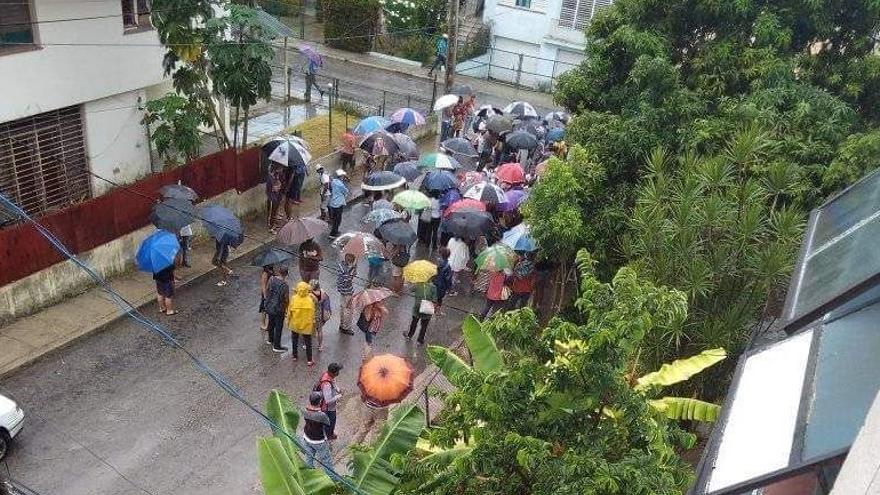
![]() 14ymedio, Havana, 24 May 2022 — The provincial government of Havana took a further step in rationing, by decreeing new limitations for the sale of products through state businesses that sell in national currency, to take effect on Friday, May 20.
14ymedio, Havana, 24 May 2022 — The provincial government of Havana took a further step in rationing, by decreeing new limitations for the sale of products through state businesses that sell in national currency, to take effect on Friday, May 20.
A month after it was announced that people could only shop in the establishments of the municipality of residence, the new provisions obliged people to access more restricted spaces.
Through the new regulations, in addition, the bodegas — ration stores — will be linked to the Cimex and Caribe stores.
According to a note released this Tuesday by local authorities, the reorganization has been carried out “with the aim of reducing the crowding of people in establishments and the need for better marketing of the products most in demand by the population.”
Another of the new measures that came into force is a reform in the “organization by cycle” of the sales, so that a new cycle will not begin until 90% of the family units assigned to the establishment have not made their purchases.
How these cycles are going to be defined is one of the questions people have. “Will the cycle be by products or will it start one day of the month from what is in the store’s warehouse?” asked a customer who just found out about the regulations outside the La Mariposa store, in New Vedado.
“If the cycles are according to products, then this is going to be chaos, but if they do it in another way, then people will need to sleep outside the store for several days ahead of time, to be able to acquire the greatest amount of food at the beginning of the cycle,” the woman ventured. The market workers had no answers to those questions.
The measure, it’s true, does not include stores that only take payment in freely convertible currency (MLC), which continue to be outside the purchase restrictions based on municipality. This morning, in the market on Boyeros and Camagüey streets, several customers inquired with the employees about the possibility that the regulations might be imposed at those businesses.
“We have not received any official communication about that, so we will continue to operate as we have done up to now,” a local worker told this newspaper. In the store they do not require people to show their identity card, either to enter the store or when paying, although it is mandatory to present a bank card in MLC associated with a national bank or a Visa or Mastercard from a foreign bank that is not American.
Most products are still not rationed, although there are quantity restrictions on frozen chicken, sausages, tuna and other frozen or meat products.
On the other hand, in stores that take payment in pesos, purchases will continue to be written down in the rationbook and limitations will be applied to the number of products that can be bought based on availability.
It will also continue to be an essential requirement to show the identity card, which will be scanned to have a record of what has already been withdrawn.
At the entrance of the establishment, “a primary control model will be established where the nucleus [family] number will be registered” that must be supervised by a representative of the so-called ’Fight Against Coleros*’, a verification mechanism introduced by the Government in August 2020 and that It basically consists of having agents at the doors of stores to ensure that buyers do so in accordance with established rules, aided by a series of technological tools.
*Translator’s note: “Coleros” are individuals who stand in line for others, for a small payment.
____________
COLLABORATE WITH OUR WORK: The 14ymedio team is committed to practicing serious journalism that reflects Cuba’s reality in all its depth. Thank you for joining us on this long journey. We invite you to continue supporting us by becoming a member of 14ymedio now. Together we can continue transforming journalism in Cuba.
